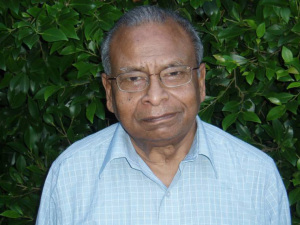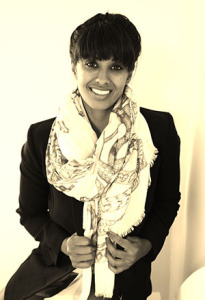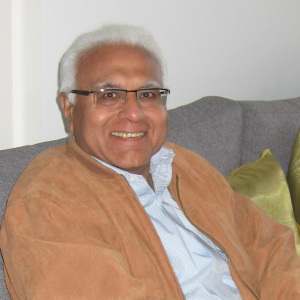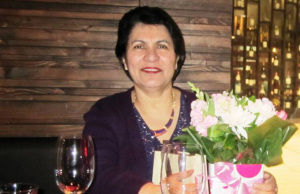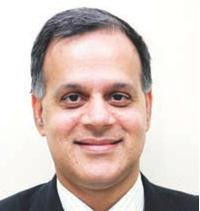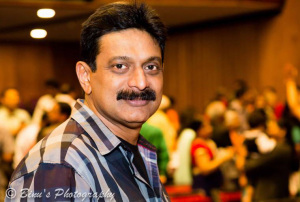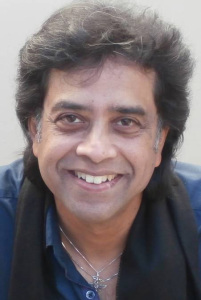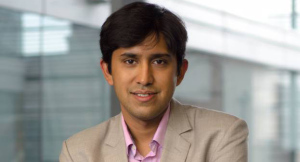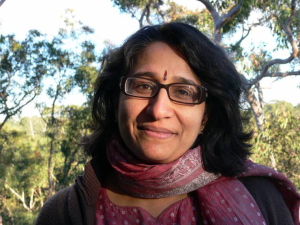Qs for PM Abbott on Modi’s visit
By Neena Badhwar
TIDU asked members of the community to put their thinking cap on and ask Prime Minister Mr Tony Abbott one thing that they think he should discuss when he meets Prime Minister Narendra Modi. After all, all of us who have made Australia home since the 1970s when it opened its door to Asian immigration, we are sure, are affected by government policies and issues that arise here by living here. Indians in Australia are a hardworking and a diligent lot and are still struggling to make themselves at home as India provides the biggest source of skilled migration to Australia. The issues and questions raised to Mr Abbott do resonate with all what arises in the minds of our community though they are at times off the mark to do with Indo-Oz relations but still quite valid in their concerns. Please read on:
Dinesh Srivastava, Editor of Hindi Pushp and a teacher of Hindi in Melbourne
His question to Prime Minister Mr Tony Abbott is:
Question: What can Australia do to improve Australians’ knowledge of Hindi language and to improve awareness of Indian culture and India generally? How can India help achieve this goal?
Explanation: I would like both leaders to discuss how both countries can cooperate in making the provision for learning Hindi in normal Australian schools. While ACARA has embarked on the task of selecting curriculum writers for Hindi, Hindi has not been included in a trial program for young children to learn a language using latest technological tools. Both countries can share material and human resources in making this provision effective. China has established a centre at Melbourne University for training teachers of Mandarin. Consideration should be given to establish a similar centre for teaching Hindi.
Due to the vast geographical distances in Australia and availability of technology, Hindi courses also need to be available through distance education at all levels. Educational exchanges, provision for training Hindi teachers, cooperation with Central Hindi Directorate, New Delhi, Hindi Sansthan Agra, National Council of Education and Training etc. Deputation of Hindi experts and curriculum developers for short term assignments, governmental assistance for institutions undertaking teaching of Hindi and Indian studies and launch of a national program to emphasize the importance of Hindi are some of the things that may be considered.
Sarika Gupta, Doctor – “My question is central to the proposed Medicare co-payment. Whilst it is clear that Medicare is unlikely able to sustain the growing burden of chronic disease in Australia, it seems the co-payment proposition will ultimately transfer the responsibility to public hospital emergency departments. As a doctor in the public system where we are already battling to meet service expectations, particularly with recently imposed ‘4 hour rules’ this concerns me. How does the government propose to handle this overflow into the public system?”
Kirit Ruparelia, retired businessman, Sydney: “Small businesses are significant generators of business and entrepreneurship in Australia and India. Both countries employ tens of millions of people. In Australia there is still a disparity and inequity at policy level between large and small enterprises. Is this also an issue in India?
How can small businesses be treated fairly and have access to justice and effective empowered dispute resolution services. How can the concerns and needs of this vital sector of economy be heard and lead to improvement in policies.
Kamini Sahni, Coding Controller ASSA ABLOY Australia Pty Ltd., and a housewife: I would like to say something both to Mr Modi and Mr Abbott keeping in mind the welfare of us migrant families here:
Mr Abbott:
Some of the parents living in India who are left alone in India and wish to join their children and grandchildren are unable to do so because the waiting period to get PR is very long and the fee to get a PR on priority is extremely high. If the fee is made affordable for these seniors then they can be with their children in the last few years of their lives.
He could raise the question of students’ educational programmes here. Instead of having agents we could and should encourage twinning programs where direct representatives of the universities get in touch with students in India. Also the universities should offer hostel accommodation so that the students are safe and secure.
Some kind of community based affordable accommodation should be made available for Indian retirees here. At the moment the aged care homes are very expensive.
Point for Mr Modi:
NRIs are hesitant to invest in India as they do not get the possession of the properties they have paid for on time. At times they do not get the properties at all. A policy to be made where NRI’s hard earned money is safe and they are able to enjoy the fruit of their investments.
Dr Yadu Singh, Cardiologist: Prime Minister Tony Abbott should discuss with Prime Minister Narendra Modi about putting speed on Free Trade Agreement (FTA) discussions between the two countries. Media and films should be part of that discussion. PM Abbott should also discuss about the possibility of joint funding of Hindi teaching in at least one University in Sydney and Melbourne to increase the numbers of India – literate people in Australia which will help bilateral relation and trade.
PM Abbott should also talk with Mr. Modi about facilitating establishment of joint ventures between Australian and Indian entities in the area of infrastructure and education. He should ask PM Modi to encourage Indian Media to open their bureau/offices in Australia which will help improve the reporting about Australia in India. This is important due to increasing numbers of Indian migrants and visitors as well as more active trade and strategic relations.
Sudhir Das, Businessman and Indian classical event organiser: Mr Abbott:
How can we workout the free trade agreement between the two countries?
How can we make the simple visa process for business people and artists and thus improving our cultural integration?
Avijit Sarkar, an artist and Editor of E-Zine ”˜Mind Creative’, says to Mr Abbott: “In my opinion, there needs to be a huge focus on joint ventures in Science and Art between the two countries. Given the intellectual repositories in India and the resources from Australia, this handshake has the potential to produce amazing outcomes. On the scientific front, I believe that joint research projects between these two countries will be a force to reckon with on the international stage while on the arts front there needs to be serious considerations on the understanding the cultures of the two countries coupled with joint sponsorship of larger arts projects. Today, all we see here, are some Bollywood imports. India has much much more to offer in the creative fields. To make this happen, you need to discuss with Mr Modi and open new pathways for study scholarships, student exchanges on a larger scale, joint exhibitions and very strong forums/organisations that can build the infrastructure and support the initiatives for large joint ventures in the area of scientific research and cultural exchanges.”
Ruchir Punjabi, Founder & Chair, Langoor – “I am very interested in Mr Abbott discussing the future of the Indian youth with PM Modi and how the Australian education sector can help India ensure that the world reaps the benefits of India’s demographic dividend.
Also if Mr Abbott can look into how Australia can actually work on what is a substantial investment and trade deficit in Australia’s favour to have a more balanced bilateral relationship with India. That would help create a more meaningful and sustainable relationship over the long term.
Sumathi Krishnan, a lawyer and a founder of blog on classical music ”˜Sydhawaney’: Can Countries do more than just business with each other? India has a lot to give culturally to the West. My question to both Mr Abbott and Mr Modi is: How can our two countries open up collaborative cultural centres in India and Australia to better understand each other? Actually Mr Modi you should consider opening Indian cultural centres all over the world. I am sure, India can contribute its cultural richness here by talking to the country’s head, in this case with Mr Abbott while you are here.”
Short URL: https://indiandownunder.com.au/?p=4100

